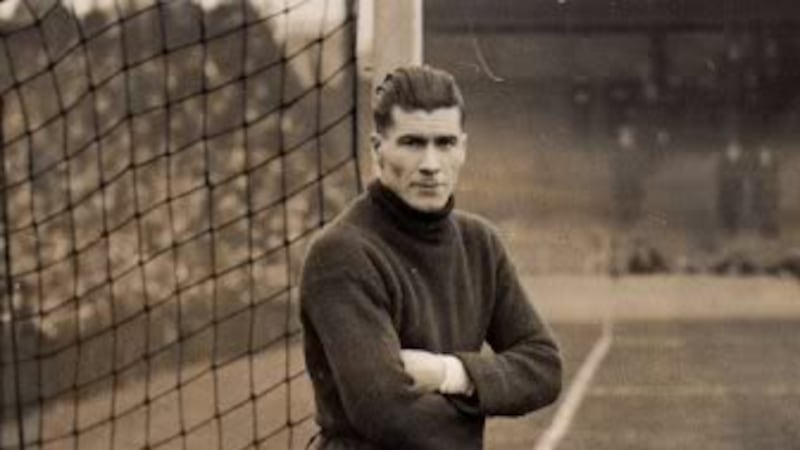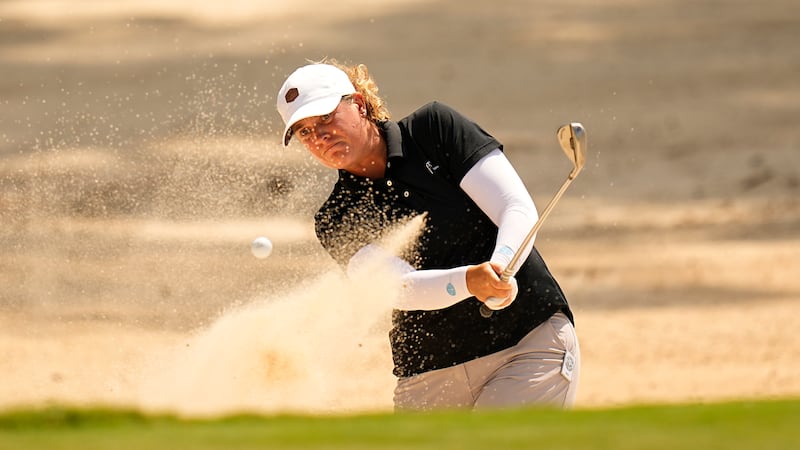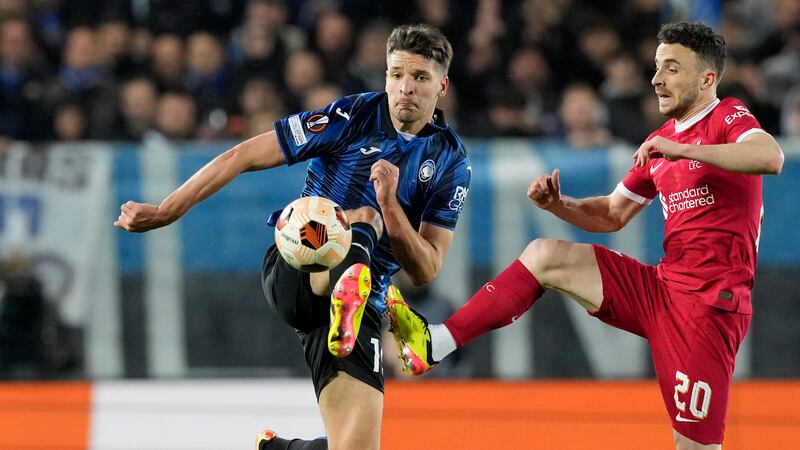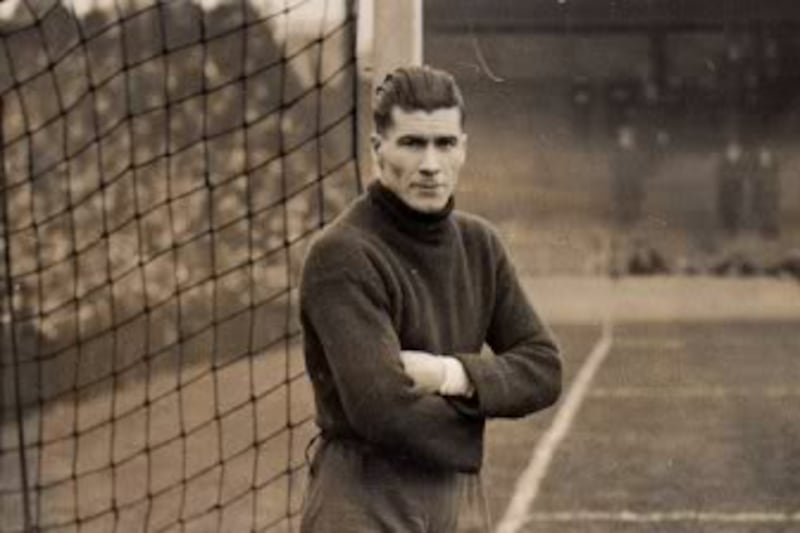ELISHA Scott left his stamp from Anfield to Paradise, revered by the Kop and Belfast Celtic faithful alike. Cahair O’Kane profiles an icon...
TO mark the 100th anniversary of Elisha Scott’s Liverpool debut, the club’s TV station LFCTV commissioned a documentary shown on New Year’s Day 2013 entitled ‘The First King of the Kop’.
History records that Elisha Scott had a playing career that is in woven through the richest tapestry of English football. He was the first to be recognised by way of a chant from the Liverpool fans, who sang “Lisha, Lisha” at his back.
They adored him. He had gone across the water from Linfield after Everton had turned down the chance to sign him in 1912 when he was 19. His brother Billy was number one at Goodison Park and recommended his club make a move for the younger sibling, but they missed out.
Had he signed up on the blue side of the Mersey, he might not only have taken Billy’s spot, but he could also have spent his career playing alongside Dixie Dean. Instead, his battles with the record-breaking goalscorer defined Scott’s playing days.
Their meetings became the stuff of folklore. Dean who famously scored 63 goals in one season (1926-27) and netted 377 times in 431 games for Everton would later say that he was the greatest goalkeeper of the lot.
“Elisha was the greatest I’ve ever seen. You can have Swift, Trautmann, Banks, Wilson. You can have them all. I’ll take Elisha Scott,” said one Merseyside legend of another.
Off the field, the two men were friends. They would regularly meet after games in the Lisbon pub in the centre of Liverpool to down a few Guinness and chew the fat.
There are many tales of their friendly rivalry. One where they met on the street in Belfast ahead of an Ireland v England game and Dean reportedly doffed his cap, to which Scott responded by shaping to save the header.
Another is of a bottle of brown aspirin reaching Scott prior to a derby with a note saying: “I thought you might be needing these. Yours, Dixie,” as if the Everton man was preparing for battle.
He knew he would get one from the Belfast man.
There are those who still put him first in the list of great Liverpool goalkeepers. Ray Clemence won league titles and European Cups in a different era, and Bruce Grobbelaar’s jelly legs hallmarked a career of both the sublime and the ridiculous.
Scott was unerringly steady. He returned home during wartime and his trophy-laden association with Belfast Celtic began as he won Irish Cup medals in 1917 and 1918.
From his return to Anfield the following season, he was absolutely immovable for more than a decade.
Three years after his return, the league title came to Anfield for the first time since 1906. That was in 1922 and the following season, despite losing manager David Ashworth (who returned to his first love Oldham), they retained the title under club director Matt McQueen.
He missed just three games in the first campaign and was ever-present in the second.
That was to be it for Scott in terms of trophies as a Liverpool player, though he would make up for that plenty upon his return home.
And that is not to take from his own personal achievements at Anfield. Because while the team won nothing of further note between 1923 and 1934, Elisha Scott chalked up a remarkable 467 appearances, keeping 137 clean sheets. He also won 31 caps for Ireland.
He was also reportedly the subject of two record bids one of £1,000 from Newcastle soon after his debut, and one of £10,000 from an unnamed club in 1928.
An incredible playing career by any standards. But his grip on the number one jersey had loosened at the start of the 1930s as Arthur Riley came along.
When Belfast Celtic came calling and offered him the role of player-manager in 1934, he wanted to go. Liverpool let him. The last game he played, after more than 21 years with the club across two spells, was a 2-0 defeat at Chelsea.
If his playing career was impressive, then his time in charge of Belfast Celtic was astonishing.
He returned home in ’34 and ended up in charge of the Irish League side for each of its last 15 years.
Thirty-one trophies his teams won. Ten Irish League titles, six Irish Cups and eight Gold Cups were to the forefront of a period of domination.
When Elisha Scott arrived back on the Donegall Road, his former club Linfield were on the pedestal. They won back-to-back titles in 1934 and ’35, with Celtic finishing second to them in the first of those campaigns.
But once legendary goalscorer Joe Bambrick left Windsor Park for Chelsea, the path opened up in front of Belfast Celtic.
And Elisha Scott, with his high standards in both fitness and discipline, ensured that it was his side that took over rather than a Derry City side that also challenged.
With Bertie Fulton and Harry Walker by his side, Scott moulded a team that won honour after honour, title after title, and plaudit after plaudit.
They dominated right up until 1948, when it all fell apart in the infamous ‘Boxing Day’ riot at Windsor Park on December 27.
Scott was at heart of it all until his death in 1959. Still, his name is revered in Liverpool and synonymous with Belfast Celtic.




